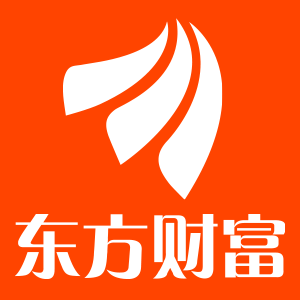Inland Real Estate Stocks Set to Resume Trading After Thunderstorm Suspension
After being suspended for nearly 16 months due to a thunderstorm, several inland real estate stocks have announced plans to resume trading. One of these companies is Shimao Group, which recently issued three financial reports at once and revealed that its stock would resume trading on July 31. Over the past two years, Shimao Group, once a leading real estate giant, has suffered losses totaling 36.075 billion yuan.
Similar to Evergrande, Shimao Group’s auditors have expressed their inability to comment on the uncertainty surrounding the company’s future. Nevertheless, a group of real estate companies has collectively announced their intention to resume trading, as they approach the maximum 18-month suspension period set by the Hong Kong Stock Exchange.
Behind Shimao Group, there are still several real estate companies, including CIFI Holdings, China Aoyuan Holdings, Fantasia Holdings, and Sunshine 100, among others, that have yet to resume trading.
Shimao Group Releases Alarming Financial Reports
On July 28, Shimao Group, which once boasted sales of over 300 billion yuan and was among the top ten real estate companies, reissued three financial reports for 2021, the first half of 2022, and the full year of 2022. The company’s financial situation has significantly deteriorated over the past two years. In 2021, contract sales amounted to 269.11 billion yuan, with revenue of approximately 107.797 billion yuan, a 20.4% decrease from the previous year. For 2022, contracted sales are projected to drop to 86.52 billion yuan, with revenue of about 63.040 billion yuan, marking a 41.5% decline from the previous year.
During the same period, Shimao Group’s core business losses attributable to shareholders reached 23.251 billion yuan in 2021 and 12.825 billion yuan in 2022, resulting in a total loss of 36.075 billion yuan over two years. Furthermore, the company’s debt situation is a cause for concern. Total interest-bearing liabilities increased from 145.143 billion yuan at the end of 2020 to 274.007 billion yuan at the end of 2022, representing an 88.8% increase. Additionally, Shimao Group had only 22.035 billion yuan in cash as of the end of last year. The net debt ratio stood at 302.2% by the end of 2021 and 156% by the end of 2022. The asset-liability ratio, excluding advance receipts, reached 83.8% at the end of 2021 and further increased to 83.4% at the end of 2022. The short-term cash-to-debt ratio, a measure of short-term solvency, was a meager 0.03 at the end of last year.
Amidst these alarming financial figures, Shimao Group’s auditors, Zhonghui Anda, stated their inability to express an opinion on the company’s consolidated financial statements, citing significant uncertainties regarding the realization of plans and measures described by Shimao Group.
Resumption of Trading Nearing Deadline
Shimao Group’s decision to resume trading comes after the expiration of the 18-month suspension period stipulated by the Hong Kong Stock Exchange. According to Rule 6.01A(1) of the Listing Rules, securities suspended for 18 consecutive months can be delisted. On April 1 of last year, Shimao Group and several other real estate companies failed to disclose their annual reports on time, leading to the suspension of trading.
However, before resuming trading, Shimao Group must fulfill certain conditions, including conducting an independent investigation into the issues raised by its former auditor, Luo Bingham, in his resignation letter. The company must also publish the investigation results and take appropriate remedial measures. In June of this year, Shimao Group released the main findings of an independent investigation, disclosing four previously undisclosed trust loans brought to light by Luo Bingham. The company claims to have fulfilled all necessary requirements and believes it has adequate internal controls and procedures to comply with the Listing Rules.
Efforts to Resume Trading Underway for Other Suspended Real Estate Companies
Apart from Shimao Group, around 20 domestic real estate companies remain suspended, including China Evergrande, China Aoyuan, Sunshine 100, Fantasia Holdings, CIFI Holdings Group, and Xiangsheng Holdings Group. While preparations for the resumption of trading are being made, several companies have already met the necessary conditions. Evergrande Automobile, for instance, has resumed trading following the disclosure of its financial reports. Kaisa Group, Jingrui Holdings, and Sunac China also successfully fulfilled the resumption requirements after months of suspension.
Other suspended real estate companies are also taking steps toward resumption. China Aoyuan has recently released announcements regarding its debt restructuring plan and postponed performance reports. Likewise, Fantasia Holdings’ liquidation case is being addressed by the courts, granting the company more time to resolve its crisis.
However, there have been instances of delisting, such as Sinic Holdings Group, which was officially delisted on April 13 of this year. As the deadline for resumption approaches, three real estate companies, including Carnival International, Tianshan Development Holdings, and Jiayuan International Holdings, have received liquidation orders from the Hong Kong High Court.
Overall, the Hong Kong Stock Exchange has set specific requirements for the resumption of trading for suspended real estate companies. It includes the publication of all undisclosed financial results, the resolution of any audit revisions, and compliance with the Listing Rules. Companies must also prove their ability to sustain their business operations and fulfill the resumption guidelines.
